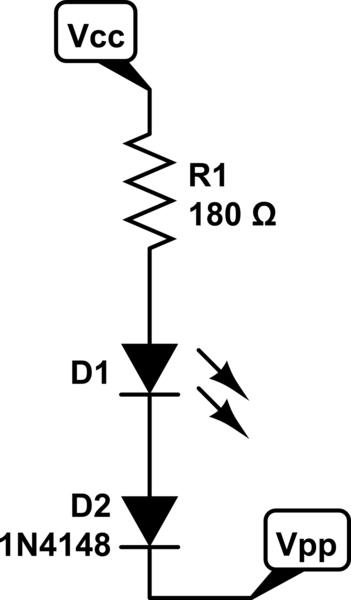
simulate this circuit – Schematic created using CircuitLab
D2 can be any old PN diode, or Shottky. It will not conduct when Vpp goes above Vcc plus a diode drop, other than the spec'd reverse leakage current. That will probably be \$<10\mu A\$ depending on your diode choice. You'll turn the LED on by pulling Vpp low. Since you're adding another diode drop, R1 will need to be resized to allow the desired current to flow. Make sure you keep your LED currents within the device's absolute maximums.
